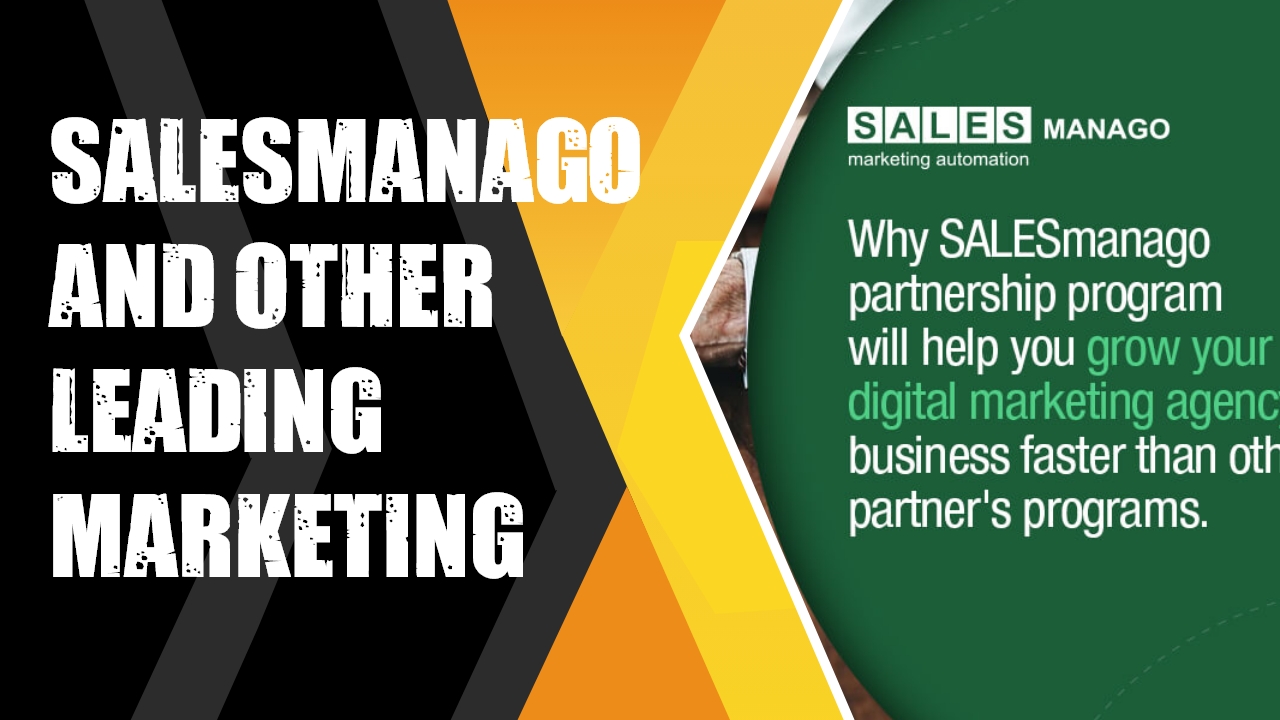SALESmanago and 3 Other Leading Marketing Automation Companies
In the fast-evolving world of digital marketing, automation has become a critical tool for businesses aiming to optimize their marketing efforts, enhance customer engagement, and drive revenue growth. Marketing automation platforms help companies streamline their marketing processes, from lead generation to customer retention, by automating repetitive tasks and providing valuable insights. Among the many marketing automation tools available, SALESmanago stands out for its comprehensive suite of features. In addition, there are other leading platforms that have carved out significant niches in the industry. Here, we explore SALESmanago and three other prominent marketing automation companies: HubSpot, Marketo, and ActiveCampaign.
1. SALESmanago
SALESmanago is a versatile marketing automation platform designed to cater to the needs of both small businesses and large enterprises. Founded in 2012, SALESmanago has grown rapidly, offering a robust array of tools aimed at enhancing customer relationships and boosting sales.
Key Features:
- Advanced Customer Segmentation: SALESmanago allows users to create highly targeted customer segments based on a wide range of criteria, including behavior, demographics, and engagement history. This segmentation helps in crafting personalized marketing campaigns that resonate with specific audience groups.
- Omni-Channel Marketing Automation: The platform supports automation across multiple channels, including email, SMS, social media, and web notifications. This ensures a cohesive and integrated approach to customer engagement.
- Real-Time Personalization: SALESmanago offers real-time personalization features that adapt marketing messages and offers based on the user’s behavior and interactions. This helps in delivering highly relevant content that drives conversions.
- AI-Powered Insights: The platform leverages artificial intelligence to provide predictive analytics and actionable insights, helping businesses understand customer behavior and optimize their marketing strategies.
Pros:
- Comprehensive feature set with a focus on personalization and segmentation.
- Strong omni-channel capabilities for integrated marketing efforts.
- AI-driven insights for improved decision-making and campaign optimization.
Cons:
- The platform’s extensive features may have a steeper learning curve for new users.
- Customization options can be overwhelming for smaller businesses with simpler needs.
2. HubSpot
HubSpot is one of the most well-known names in the marketing automation space, offering a comprehensive suite of tools designed to support inbound marketing, sales, and customer service. Founded in 2006, HubSpot has become a go-to platform for businesses of all sizes looking to streamline their marketing efforts and drive growth.
Key Features:
- All-in-One Platform: HubSpot’s platform includes tools for content management, email marketing, social media management, SEO, lead generation, and customer relationship management (CRM). This integration allows for a seamless marketing and sales experience.
- User-Friendly Interface: HubSpot is known for its intuitive interface and ease of use, making it accessible to users with varying levels of technical expertise. The platform’s drag-and-drop functionality simplifies the creation of marketing campaigns and workflows.
- Robust Analytics and Reporting: HubSpot provides detailed analytics and reporting features that help users track the performance of their campaigns, measure ROI, and gain insights into customer behavior and engagement.
- Lead Nurturing and Scoring: The platform offers advanced lead nurturing and scoring capabilities, allowing businesses to automate follow-ups, prioritize leads, and tailor their marketing efforts based on lead activity.
Pros:
- Comprehensive all-in-one solution with a user-friendly interface.
- Strong CRM integration for improved lead management and customer relationship building.
- Extensive educational resources and support options.
Cons:
- The cost of HubSpot’s premium features can be high for smaller businesses.
- Some advanced features are available only in higher-tier pricing plans.
3. Marketo
Marketo, a part of Adobe since 2018, is a leading marketing automation platform known for its powerful capabilities in lead management, email marketing, and campaign automation. Founded in 2006, Marketo is favored by enterprise-level organizations for its scalability and advanced features.
Key Features:
- Advanced Lead Management: Marketo excels in lead management, offering sophisticated tools for lead scoring, nurturing, and segmentation. The platform helps businesses identify and prioritize high-quality leads for more effective sales engagement.
- Multi-Channel Campaigns: The platform supports multi-channel marketing efforts, including email, social media, web, and mobile. This allows businesses to create integrated campaigns that reach customers through their preferred channels.
- Customizable Workflows: Marketo’s workflow automation tools are highly customizable, enabling businesses to design complex workflows and automate repetitive tasks based on specific triggers and conditions.
- Robust Analytics and Reporting: Marketo provides in-depth analytics and reporting features that offer insights into campaign performance, customer behavior, and marketing ROI. The platform also integrates with various third-party analytics tools for enhanced data analysis.
Pros:
- Advanced lead management and segmentation capabilities.
- Flexible and customizable workflow automation.
- Powerful analytics and reporting for data-driven decision-making.
Cons:
- The platform’s complexity can be overwhelming for smaller businesses or those new to marketing automation.
- Higher pricing tiers may be costly for smaller organizations.
4. ActiveCampaign
ActiveCampaign is a rapidly growing marketing automation platform that offers a range of tools designed to enhance customer experience and drive sales growth. Founded in 2003, ActiveCampaign is known for its affordability, ease of use, and strong email marketing capabilities.
Key Features:
- Email Marketing Automation: ActiveCampaign provides robust email marketing automation features, including customizable templates, automated workflows, and advanced segmentation. This helps businesses create personalized email campaigns that engage and convert.
- CRM Integration: The platform includes a built-in CRM system that integrates seamlessly with marketing automation features, allowing businesses to manage leads, track sales activity, and automate follow-ups.
- Customer Experience Automation: ActiveCampaign offers tools for customer experience automation, including personalized messaging, behavior-based triggers, and customer journey mapping. These features help businesses deliver targeted content and enhance customer engagement.
- Affordable Pricing: ActiveCampaign is known for its competitive pricing, offering a range of plans that cater to different business sizes and needs. This makes it an attractive option for small to mid-sized businesses looking for value without compromising on features.
Pros:
- Strong email marketing automation and CRM integration.
- User-friendly interface and affordable pricing.
- Advanced segmentation and personalization features.
Cons:
- Limited features in the lower pricing tiers.
- Some users may find the platform’s reporting capabilities less comprehensive compared to competitors.
Final Thoughts
Marketing automation platforms like SALESmanago, HubSpot, Marketo, and ActiveCampaign each offer unique features and benefits tailored to different business needs and budgets. SALESmanago stands out for its advanced personalization and omni-channel capabilities, while HubSpot offers an all-in-one solution with a user-friendly interface. Marketo excels in lead management and advanced analytics, making it ideal for enterprise-level organizations, and ActiveCampaign provides a cost-effective option with strong email marketing and CRM integration. By understanding the strengths and limitations of each platform, businesses can select the marketing automation tool that best aligns with their goals and enhances their marketing strategies










